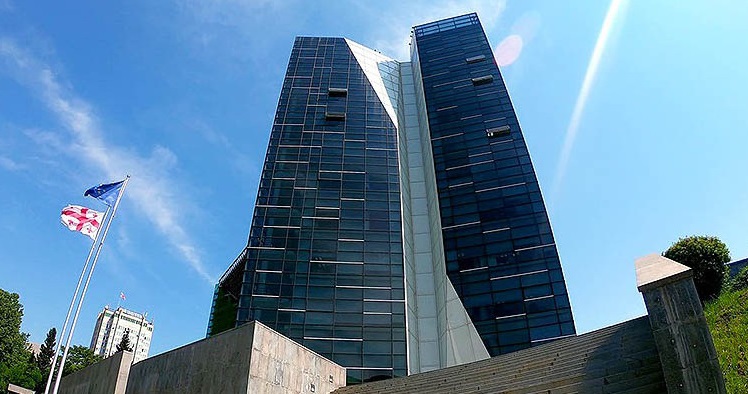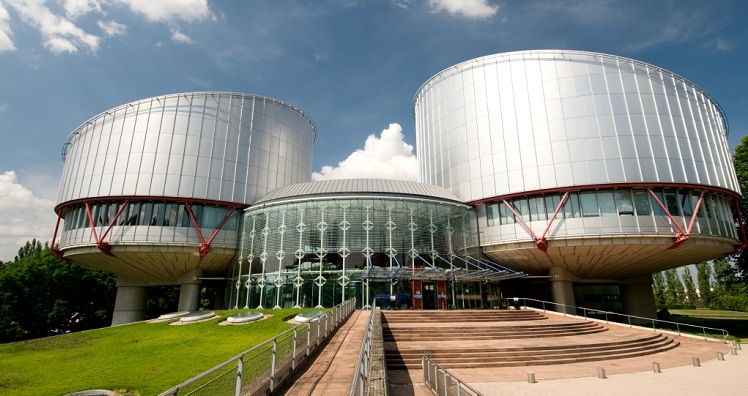ECHR ruling confirms torture “widespread” in Georgian prisons under UNM Gov’t - Justice Ministry

The Georgian Justice Ministry has responded to the recent ruling of the European Court of Human Rights involving a former Georgian inmate. Photo: Justice Ministry press office
The European Court of Human Rights ruling in a case involving a former prisoner has “confirmed” torture and inhuman treatment were “systematic and widespread” in Georgian prisons under the United National Movement Government, the country’s Justice Ministry said on Friday.
The comment comes following Thursday’s ruling of the ECHR in the case Ochigava v Georgia, where the Court found the applicant had suffered “systematic acts of ill-treatment” in Gldani Prison No.8 in Tbilisi between June 2011 and August 2012, while the competent domestic authorities had “failed to conduct an effective investigation” into the matter.
In the lawsuit, lodged in 2015, the applicant claimed he had been subjected to “repeated acts of ill-treatment” in prison by eleven identifiable prison officers. The submission also alleged some of the offenders had held senior positions and “arbitrarily impos[ed] various excessive restrictions and [sought] every possible pretext to beat the prisoners in order to assert their power and instil fear in them”.
The lawsuit also said inmates had not been allowed to speak in normal voice amongst themselves and could only whisper during detention, while during the day they had been forbidden to lie down on their beds and were only allowed to sit on them.
In addition to the physical abuse, the applicant had claimed the prison staff had prevented them from having access to the prison shop where they would normally buy certain basic items, and also “systematically denied” them the right to family visits.
 Pointing to the “sharp decrease” of lawsuits against Georgia in the ECHR, Justice Minister Rati Bregadze said earlier this month the Court would review only 155 complaints filed against the country this year, compared to 2009-2012 figures that he said had ranged between 3,000-4,000. Photo: CoE.
Pointing to the “sharp decrease” of lawsuits against Georgia in the ECHR, Justice Minister Rati Bregadze said earlier this month the Court would review only 155 complaints filed against the country this year, compared to 2009-2012 figures that he said had ranged between 3,000-4,000. Photo: CoE.
The beating of newly arrived prisoners was routine practice in Gldani Prison – the so-called ‘quarantine procedure’ – and the applicant was no exception. Thus, on the day of his arrival at Gldani Prison he was beaten so severely that in addition to sustaining multiple bruises, several of his front teeth were broken”, the ruling said.
Another form of ill-treatment alleged by the applicant in his complaints was his “regular and arbitrary placement” in either solitary confinement or a small detention cell for several days, in retaliation for voicing “even minor protests” against the abuse at the hands of prison staff.
The [solitary confinement space] was a cell measuring ten square metres and containing no furniture apart from a folding metal bed. During the day the applicant had to sit on the cement floor, as the bed was folded and attached to the wall with a lock”, the court said.
ECHR said after attempting to send a complaint on the abusive practices at the prison to the President of Georgia in October 2011, the applicant had received a “particularly severe beating from the prison officers”, with his spine so badly injured that he had lost the ability to walk.
In March 2014 the applicant was confirmed to have a permanent disability.
Ochigava left prison in January 2014, under the Georgian Dream Government. Several individuals were arrested and convicted between 2017-2018 in the case over prisoner treatment.
The ECHR has ordered the Georgian state to pay the applicant €20,000, plus any tax that may be chargeable, for non‑pecuniary damage.
 Tweet
Tweet  Share
Share